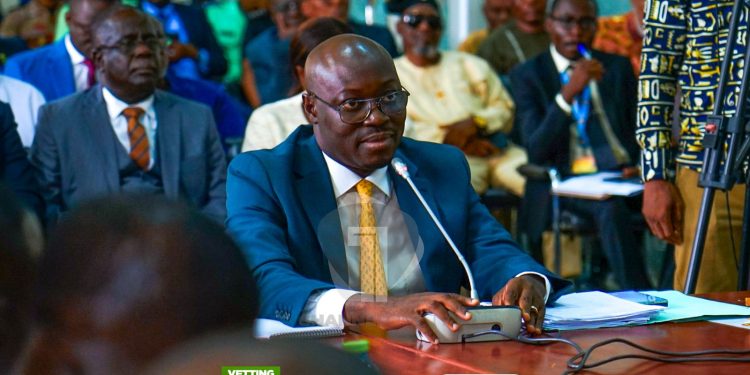The Ghana AIDS Commission has stated that People Living with HIV (PLHIV) do not die from the virus itself, but rather from the stigma that society attaches to them.
It said that although HIV remained a significant issue in the country, the human rights of the PLHIV must always be respected.
The Volta/Oti Regional Technical Coordinator of the commission, Mary Naa Asheley Anyomi, presenting a paper on the ‘State of HIV Epidemic’ at a Ghana AIDS Commission/Youth Employment Agency forum in Ho, said stigma and discrimination against people living with HIV discouraged testing, treatment and disclosure, while cultural and religious barriers limited discussions on sex education, condoms use and reproductive health.
She was presenting the paper to 945 trainee Community Police Assistants (CPAs) at the Ho Police Training School in Ho.
The technical coordinator entreated the CPAs to be HIV advocates to their peers and community members and abstain from unprotected sex at their duty posts, adding that prevention is always better than cure.
Sharing some data on the disease in the region, Mrs Anyomi stated that there are now 19,078 people living with HIV in the Volta Region. They include 4,999 males, 12,881 females and 1,198 children under 14 years.
Also, eight districts – Anloga, Ho, Hohoe, Ketu South, North Tongu, South Tongu, Ketu North and Ho contributed 75 per cent of the total number of new infections in the region, and 60 per cent of every 100 new infections recorded were among females, she said.
Seven of the 18 districts and municipalities in the region had less than 60 per cent of anti-retroviral coverage, and only one district had the highest coverage of over 61 per cent, while the target was 95 per cent.
























































![[FREE FREE MONEY] Predict and Win a Guaranteed GH¢200 From Us EVERY WEEK](https://wordpress.ghanatalksradio.com/wp-content/uploads/2022/02/Predict-and-Win-Final-09-03-2021-218x150.jpg)
![[Predict & Win – 8th/Oct.] WIN A Guaranteed ¢200 From Us This Week](https://wordpress.ghanatalksradio.com/wp-content/uploads/2021/10/maxresdefault-16-218x150.jpg)
![[Predict & Win – 2nd] WIN A Guaranteed ¢200 From Us This Week](https://wordpress.ghanatalksradio.com/wp-content/uploads/2021/09/maxresdefault-50-218x150.jpg)
![[Predict & Win – 25th] WIN A Guaranteed ¢200 From Us This Week](https://wordpress.ghanatalksradio.com/wp-content/uploads/2021/09/maxresdefault-36-218x150.jpg)
![[Predict & Win – 18th] WIN A Guaranteed ¢200 From Us This Week](https://wordpress.ghanatalksradio.com/wp-content/uploads/2021/09/maxresdefault-23-218x150.jpg)









![[National cathedral] See full list of churches that have contributed since 2018](https://wordpress.ghanatalksradio.com/wp-content/uploads/2020/09/Ghana-National-Cathedral-GhanaTalksRadio-100x70.jpg)



